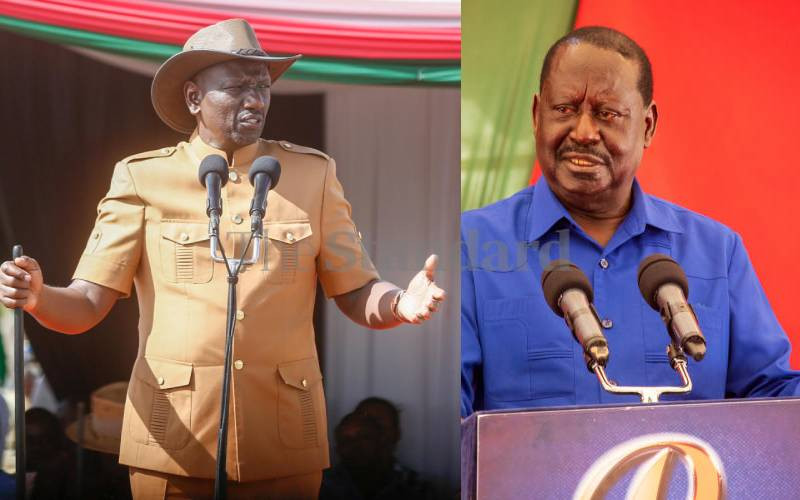
Times and fortunes are changing for Kenya's three prominent political players who from 2002 have dominated happenings in Kenya. They are Uhuru Kenyatta, Raila Odinga, and William Ruto and they collectively treat Kenya as an experimental laboratory. Ruto declares he is a scientist, having obtained a University of Nairobi doctorate in plant ecology while serving as deputy president to Uhuru, and leads the way in experimenting.
The trio crave for adulation so much that they are vulnerable to extra-continental persuasion. They were active in the 2022 election in which Ruto beat Uhuru and Raila. Since then, political prospects have swung like a pendulum from one side to the other. The pendulum is swinging against Ruto.